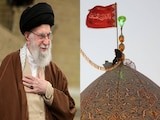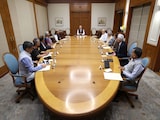Geneticists from Kyushu University in Japan have achieved a major scientific breakthrough, creating a mice with two biological fathers by generating eggs from male cells, according to a report in The Guardian. The development is being hailed in the scientific community as it can open radical new possibilities for human reproduction. It can also pave the way for treatment of severe forms of infertility and same-sex couples being able to have children in the future, the outlet further said in its report.
"This is the first case of making robust mammal oocytes from male cells," Professor Katsuhiko Hayashi, who led the pioneering work at Kyushu University, was quoted as saying by The Guardian.
Professor Hayashi is internationally renowned as a pioneer in the field of lab-grown eggs and sperm.
He presented his findings to the International Summit on Human Genome Editing at the Francis Crick Institute in London. Professor Hayashi claimed that it will be possible to create a viable human egg from a male skin cell within a decade. Others said this timeline is optimistic.
Explaining the research, The Telegraph said that involved creating a stem cell from a skin cell of a male mouse, and then deleting the Y chromosome and duplicating the X chromosome, allowing it to turn into an egg.
Scientists created 600 implants using the techniques, but only seven pups were born and went on to lead a healthy life and have offspring of their own.
However, this is not the first time such an attempt has bene made. According to Telegraph report, Chinese scientists bred mice from two fathers on 2018, but the pups were unhealthy and died after a short time.















